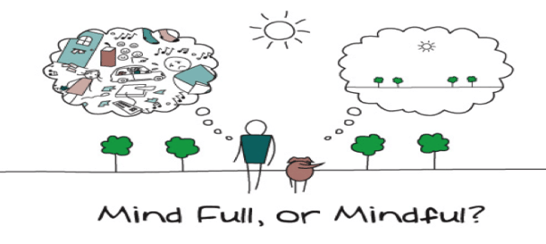A Nurse’s life requires a level of selflessness and compassion that is incomparable to most, if not all, other careers. In this demanding and fast-paced world, where caregivers are faced with numerous challenges and responsibilities, the practice of mindfulness has emerged as a valuable tool for maintaining physical, mental, and emotional well-being. Mindfulness, rooted in ancient meditation practices, involves cultivating present-moment awareness and non-judgmental acceptance. Millions of employees in all career categories and positions are currently practicing mindfulness. In recent years, its incorporation into Nursing practice has demonstrated remarkable benefits, enhancing patient care, reducing burnout, and fostering a more compassionate and effective healthcare environment.
Enhanced Patient Care
Mindfulness in Nursing has a direct positive impact on patient care. When Nurses practice mindfulness, they become attuned to the present moment, allowing them to be fully present with their patients. By actively listening, observing, and engaging without judgment, Nurses can create a deeper connection with patients. This connection fosters a sense of trust and empathy, which are crucial elements in effective patient care.
Mindfulness also contributes to clinical decision-making. When Nurses are fully present, they can better assess patients' needs and conditions, leading to more accurate diagnoses and treatment plans. Furthermore, mindful Nurses tend to notice subtle changes in patients' conditions that might otherwise go unnoticed, potentially preventing complications or deterioration.
Reduced Burnout and Stress
Nursing is undoubtedly a high-stress profession, accompanied by long shifts, critical decisions, and emotionally charged situations. Mindfulness practices offer Nurses valuable tools to manage and reduce these stressors. Regular mindfulness practice has been shown to lower cortisol levels, the body's stress hormone, leading to decreased anxiety and burnout.
Through mindfulness techniques such as deep breathing, practicing muscle relaxation, and meditation, Nurses can activate the body's relaxation response, promoting a sense of calm even in the midst of chaotic situations. This not only benefits Nurses' mental and emotional well-being but also helps them maintain their focus, clarity, and resilience, which are essential for providing quality patient care.
Cultivation of Compassion and Empathy
Mindfulness fosters compassion and empathy – qualities that are fundamental to Nursing practice. By practicing self-compassion, Nurses learn to be kind and understanding toward themselves, even when facing challenges or mistakes. This self-compassion extends naturally to patients, as Nurses become more attuned to their emotions and needs. This heightened empathy can significantly improve the patient experience, making them feel understood, cared for, and respected.
Incorporating mindfulness into their routines also enables Nurses to better navigate emotionally charged situations. They can respond to patients' and families' emotions with patience and understanding, rather than reacting impulsively. This emotional regulation creates a more supportive environment for everyone involved.
In the ever-evolving landscape of Nursing, the integration of mindfulness practices holds immense promise. From enhancing patient care to reducing burnout and stress, cultivating compassion and empathy, and improving communication, the benefits of mindfulness in Nursing are undeniable. By adopting mindfulness techniques, Nurses can create a more holistic, patient-centered, and empathetic healthcare environment. With hundreds of mobile apps and programs, practicing mindfulness has now become easier than ever. As mindfulness continues to gain recognition, its incorporation into Nursing education and practice stands to elevate the quality of care and the well-being of both Nurses and their patients.


 A few years ago, I attended a conference where Ron Culberson was a featured speaker. Every few months since then, I receive Ron’s eNewsletter and I always find what he has to say inspiring. He points out the everyday things in our lives and how we need to slow down and be present.
A few years ago, I attended a conference where Ron Culberson was a featured speaker. Every few months since then, I receive Ron’s eNewsletter and I always find what he has to say inspiring. He points out the everyday things in our lives and how we need to slow down and be present.